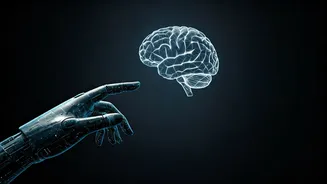Understanding the Shift
The surge of Artificial Intelligence across various industries has resulted in significant shifts in the job market, particularly in the United States,
where widespread layoffs are becoming increasingly common. This trend is compelling job seekers and those considering career changes to carefully evaluate which professions are most likely to maintain their relevance and security in the long run. The impact of AI extends beyond simple automation, influencing roles across numerous sectors and demanding professionals with skill sets that can complement or work alongside these advanced technologies. This situation highlights a critical need to understand the dynamics between AI and different job categories to accurately predict which will withstand the wave of automation and continue to offer solid employment opportunities.
Key Job Categories
Several job categories are considered to be comparatively safer bets in the face of escalating AI influence. These professions often require a level of human interaction, critical thinking, or practical skills that are difficult for current AI models to replicate. Some of these are healthcare professionals, which include roles like Respiratory Therapists, EMTs and Paramedics, and Physical Therapist Assistants. The demand in these areas remains high because they depend on direct patient care. In addition, the trades such as Electricians and Heating, Air Conditioning, and Refrigeration Mechanics are also crucial. They all require practical, hands-on skills that make these jobs less vulnerable to automation. Solar Photovoltaic Installers are also gaining prominence due to the growing emphasis on renewable energy.
Healthcare Professionals
Within the healthcare sector, Respiratory Therapists have a vital role in helping patients with breathing problems and respiratory illnesses. Their expertise in managing advanced respiratory equipment and providing specialized care ensures high demand. Similarly, EMTs and Paramedics are essential first responders, providing life-saving care in emergency situations, which needs rapid decision-making and hands-on skills. Physical Therapist Assistants also play an important role, assisting patients in their recovery through exercises and therapeutic interventions, often requiring a personalized and human touch. These healthcare roles share a common feature: they require interpersonal skills and nuanced problem-solving skills, making them hard to automate. The constant demand for these skilled individuals suggests they will continue to be important employment options.
Trades and Skilled Labor
The trades offer opportunities that are less likely to be fully replaced by AI. Electricians, for instance, are needed to install and maintain electrical systems, which involves hands-on work and adapting to specific site conditions. This job necessitates problem-solving and expertise, skills that are hard to replicate. The job market has also created opportunities for Heating, Air Conditioning, and Refrigeration Mechanics, because of the increasing complexity of HVAC systems. The rising focus on renewable energy has also created an increasing demand for Solar Photovoltaic Installers, which helps to increase job opportunities. These roles depend on practical abilities and adaptability, thus making them less vulnerable to the advancement of AI. This creates a good career path for those who like to work with their hands and solve real-world problems.
Adapting to the Future
Individuals looking to make their careers future-proof should consider investing in skills that are hard to automate. This involves focusing on problem-solving, critical thinking, and social intelligence skills. Developing abilities in technical fields is also essential, especially in areas where human expertise is needed, such as healthcare, skilled trades, and renewable energy. Continuous learning is also critical. Staying updated on the latest technological advancements and trends can prepare individuals to take advantage of changes in the job market. This proactive approach will increase employability and ensure stability in a changing world. Moreover, considering the unique demands of each profession while focusing on skill development provides a strong foundation for future career success.













